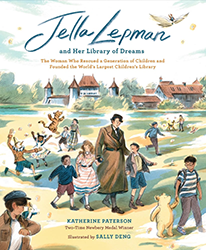In Front Lines, Michael Grant re-imagines a World War II where female soldiers are allowed to enlist in the United States army. The story features the narratives of three teenaged female soldiers which occasionally converge: Rio Richlin, a California farm girl, Frangie Marr, an African-American girl from Oklahoma, and Rainy Schulterman, a Jewish girl from New York City.
Grant succeeds in aptly portraying the time period appropriately despite a more “modern” concept. However, the fictitious premise obfuscates the reality that there were in fact female soldiers fighting for the United States in World War II. Despite this, Front Linesotherwise reads as a work of historical fiction. Grant displays the struggles of wartime and the toll it takes on the human spirit.
Although each girl has her own personal reason for enlisting, their tenacity is unparalleled. After their enlistments, the girls begin their training, but nothing will prepare them for the atrocities of the actual war. Rio, who hoped to be assigned as a driver, is appointed to fight on the front lines, Frangie works hard to become a medic, but her gender and skin color are frequently unjustly protested, and multi-lingual Rainey is assigned to work in intelligence. In addition to the turbulent experience of war and combat, the protagonists’ experiences are amplified due to rampant discrimination. Grant includes abhorrent racist, sexist, and anti-Semitic epithets, unfortunately apt for the time period. In particular, Frangie is subject to vile racism and Rainy experiences anti-Semitism.
At over 500 pages, the book is lengthy and chock-full of numerous combat scenes and accompanying disturbing imagery. Although it focuses mainly on wartime experiences, Grant does touch upon more humanistic elements, many via subplots. However, several of these are left unresolved, perhaps as incentive to check out the sequel. Additionally, there are a few chapters which feature an unnamed, omniscient narrator.
An extensive bibliography and sources are listed at the end. Grant also includes a note explaining certain details of the book such as which elements were fabricated and which were factual.
The content of Front Lines is primarily dark and gritty, but ultimately it is a well-written novel. It will be of interest to readers ages 12 and up who enjoy historical fiction and action-packed reads.





